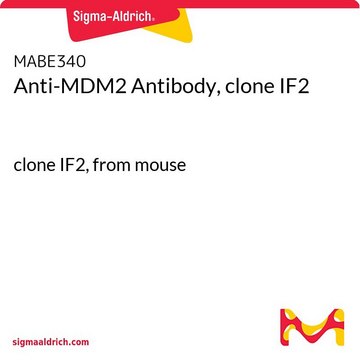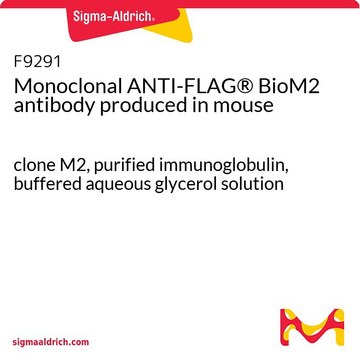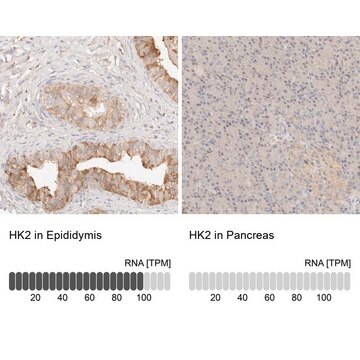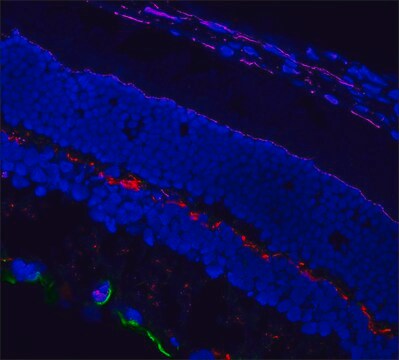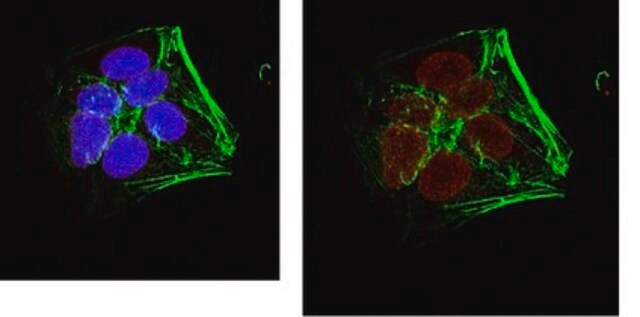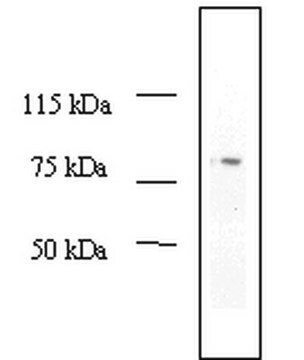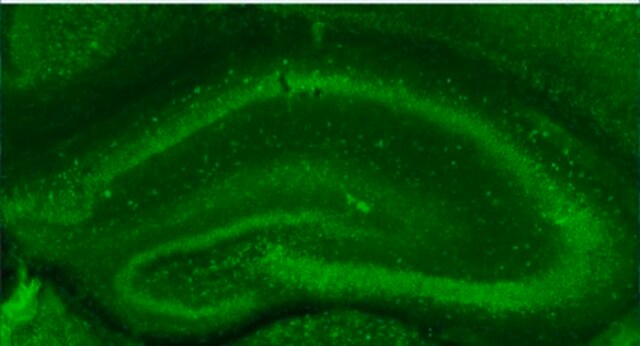MABE340-AF488
Anti-MDM2 Antibody, clone IF2, Alexa Fluor™ 488 Conjugate
clone IF2, from mouse, ALEXA FLUOR™ 488
Synonyme(s) :
E3 ubiquitin-protein ligase Mdm2, Double minute 2 protein, Hdm2, Oncoprotein Mdm2, p53-binding protein Mdm2
About This Item
Produits recommandés
Source biologique
mouse
Niveau de qualité
Conjugué
ALEXA FLUOR™ 488
Forme d'anticorps
purified immunoglobulin
Type de produit anticorps
primary antibodies
Clone
IF2, monoclonal
Espèces réactives
human
Technique(s)
immunocytochemistry: suitable
Isotype
IgG2b
Numéro d'accès NCBI
Numéro d'accès UniProt
Conditions d'expédition
wet ice
Modification post-traductionnelle de la cible
unmodified
Informations sur le gène
human ... MDM2(4193)
Description générale
Spécificité
Immunogène
Application
The unconjugated antibody (Cat. Nos. MABE340 & OP46) is shown to be suitable also for immunohistochemistry and Western blotting applications.
Epigenetics & Nuclear Function
Apoptosis - Additional
Qualité
Immunocytochemistry Analysis: A 1:100 dilution of this antibody detected MDM2 in HeLa cells.
Description de la cible
Forme physique
Stockage et stabilité
Note: Variability in freezer temperatures below -20°C may cause glycerol containing solutions to become frozen during storage.
Autres remarques
Informations légales
Clause de non-responsabilité
Vous ne trouvez pas le bon produit ?
Essayez notre Outil de sélection de produits.
Code de la classe de stockage
12 - Non Combustible Liquids
Classe de danger pour l'eau (WGK)
WGK 2
Certificats d'analyse (COA)
Recherchez un Certificats d'analyse (COA) en saisissant le numéro de lot du produit. Les numéros de lot figurent sur l'étiquette du produit après les mots "Lot" ou "Batch".
Déjà en possession de ce produit ?
Retrouvez la documentation relative aux produits que vous avez récemment achetés dans la Bibliothèque de documents.
Notre équipe de scientifiques dispose d'une expérience dans tous les secteurs de la recherche, notamment en sciences de la vie, science des matériaux, synthèse chimique, chromatographie, analyse et dans de nombreux autres domaines..
Contacter notre Service technique
